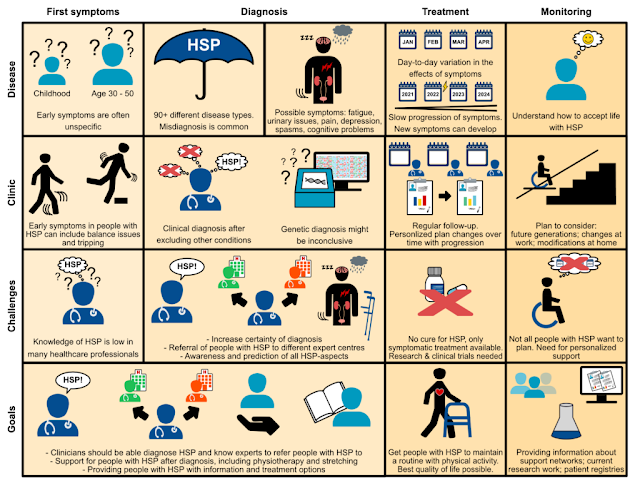This post is one of those rare cross-overs where what I'm doing at work is relevant here in the HSP space.
A piece of work which I'm involved in is looking at why people do or do not disclose their health conditions at work. This is a topic that I covered at a high level in my 2022 survey, which showed that those who choose not to disclose their HSP to people they work with or to close friends have a lower wellbeing than others. There wasn't much variation in wellbeing from choosing to disclose or not to their employer or other people.
I have reflected over survey results, over stories I've heard from people in the HSP group or have read on some of the HSP groups on Facebook. There are a good number of reasons why people might choose not to disclose their HSP (or any other health condition), which I have listed here for awareness.
This list is mostly examining why people may not want to choose to disclose at work, but does include a good range of more general life situations. I've not yet thought where disclosure sits on the acceptance journey, but the two are closely related.
- I don't have a diagnosis – people can have health conditions which are not formally diagnosed. The uncertainty around diagnosis presents uncertainty to the individual, and they may feel that they cannot identify what is wrong, and therefore are not comfortable disclosing this.
- My health condition is not relevant to my work – someone may be able to fully function at their job with underlying health conditions (e.g. asthma, arthritis, raised blood pressure, depression). As there is no intersection between their health condition and their work they don't feel the need to disclose this.
- There is nothing wrong with me – people may not accept that they have any underlying health conditions!
- My health condition is not a disability – people may not want to associate their health condition as a disability – those with progressive conditions most likely have a point where they will need to accept that their health condition affects them enough that it probably is a disability rather than a health condition.
- I don't want the label – accepting that you have a disability/health condition comes with the journey of being labelled as such. There are many negative societal views around disability and health conditions, and people may wish to avoid picturing themselves at the receiving end of such views.
- I want to keep my health conditions private. Some people may accept their condition and its consequences, but wish to keep their situation entirely private. There may be intersections here with their social/demographic/culture here.
- I don't trust what HR are going to do with the data
- I don't want my line manager to know
- I don't want my colleagues to know
- I don't want my company to know
- I don't want any support – some people may accept their health condition, but are reluctant to disclose their health condition to other people because they perceive that they can deal with everything by themselves. They perceive the disclosure as being part of a journey to seeking help/support/information.
- I don’t want to be a burden to other people - by labelling my condition I appear to have a label with people thinking that I need help.
- My health conditions are less important than other peoples' health conditions. This may be more of a factor if the person has caring responsibilities in addition to their underlying health conditions – they perceive their position to be lower down the pecking order, and their focus is more on other people than themselves.
- Disclosing makes me feel vulnerable - by disclosing a health condition, people build on the underlying cultural assumptions that people with disabilities or health conditions are weaker/less able/etc. than others.
- I wont be able to progress my career in the way I want. This has the underlying assumption that people with health conditions or disabilities have a more difficult journey advancing their career.
- I am scared of my doctor/healthcare professional - by disclosing at work the underlying question is around equally disclosing similarly to others - and a poor relationship with a GP etc. may prevent people disclosing there, which may be perceived as a higher priority than disclosing at work
- I am scared how disclosing will affect my relationships with people I love. This is part of the label issue, and part of a shift from a relationship of equals to one where someone needs to rely on the other for help/support.
- I don't want to have to deal with benefits – disclosing may open up the potential for people to think about support from the government in terms of benefits. They may perceive themselves to be payers rather than receivers – and then automatically being in the groups of people who are regularly portrayed in a negative light in the news.
- I don't want to be different – quite simply, by disclosing anything you are automatically identifying yourself as being 'different' from many other people, and that may not be a comfortable place to live your life.
